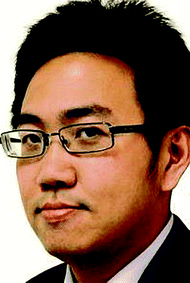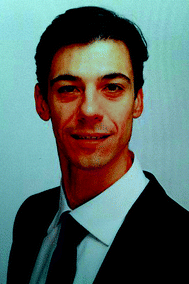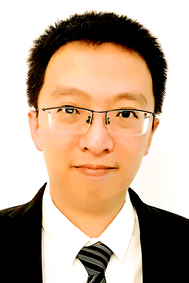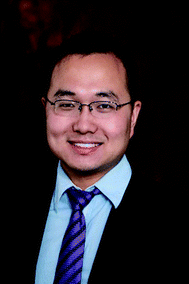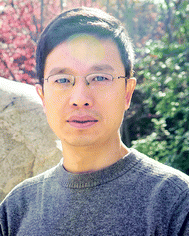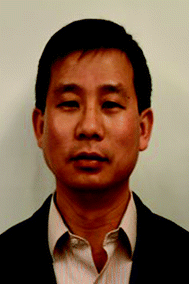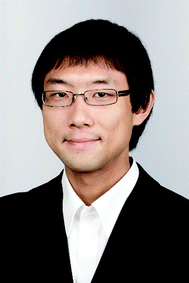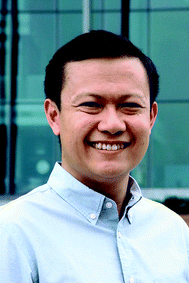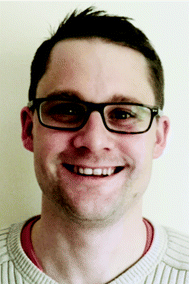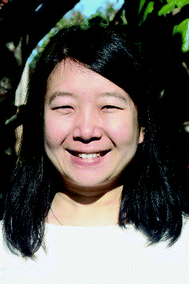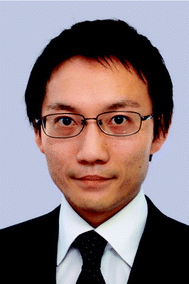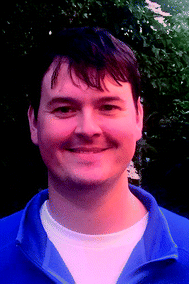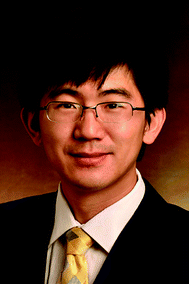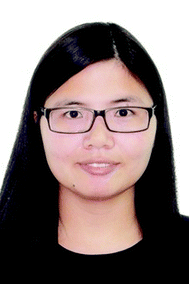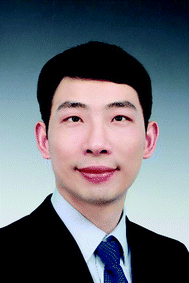DOI:
10.1039/C9TC90212K
(Profile)
J. Mater. Chem. C, 2019,
7, 12749-12753
Journal of Materials Chemistry C profiles: Contributors to the Emerging Investigators 2019 Issue
Abstract
Our 2019 Emerging Investigators themed issues gather some of the best research being conducted by scientists in the early stages of their independent career. Each contributor was recommended as carrying out work with the potential to influence future directions in materials chemistry. Congratulations to all of the researchers featured, we hope you enjoy reading this issue.
Dr Yoeri van de Burgt obtained his Master's and PhD degrees at Eindhoven University of Technology in 2014. He then briefly worked at a high-tech startup in Switzerland, after which he obtained a Postdoctoral Fellowship at the department of Materials Science and Engineering at Stanford University (USA) with Prof. Alberto Salleo. During his postdoc, his research focused on organic neuromorphic materials and electrochemical transistors. At the end of 2016, van de Burgt returned to Eindhoven as an assistant professor where he currently leads the Neuromorphic Engineering group. He has also been a visiting professor at the University of Cambridge (UK) and was recently awarded an ERC Starting Grant from the European Commission. In 2018 he was nominated for the New Scientist Talent Award.
Dr Julian Chan is an Assistant Professor at the University of Ottawa. He received his BS Chemistry from the University of Illinois at Urbana-Champaign in 2005, and his PhD in Organic Chemistry from MIT in 2010. After completing postdoctoral appointments at the University of California, Berkeley (2010–2012) and the IBM Almaden Research Center (2012–2014), Dr Chan began his independent career at the University of Ottawa in 2015. His research group focuses on designing novel organic materials for optoelectronic and biomedical applications. In 2019, Dr Chan received the Ontario Early Researcher Award (ERA) for his independent research achievements.
Dr Daniele Fazzi is a materials scientist. His interests span from multi-scale modelling of charge and energy transfer processes in functional materials, computational spectroscopy and materials for energy applications. After the PhD in 2010 at the Polytechnic University of Milan (Italy), and a first Post Doc experience at the Center for Nano Science and Technology (CNST, Italy), he left sunny Italy for less-sunny Germany. In 2013 he joined the theoretical chemistry group of Prof. W. Thiel at the Max-Planck Institut für Kohlenforschung. In 2014 he was awarded by the Alexander von Humboldt Fellowship, and in 2018 by a DFG grant. If you don’t see him working or reading, then he is probably running.
Dr Wenjing Hong received his PhD of Science (
summa cum laude) from University of Bern in June 2013 under the supervision of Prof. Thomas Wandlowski. He has been full professor on chemical engineering of Xiamen University since October 2015. His research is mainly focused on single-molecule electronics. 70+ peer-reviewed papers have been published including papers on
Nat. Mater.,
Sci. Adv.,
Chem.,
Nat. Commun., and
J. Am. Chem. Soc., and invited reviews in
Chem. Soc. Rev. and
Acc. Chem. Res., which have been cited 3700+ times. Details can be found at http://Pilab.xmu.edu.cn. ORCID: http://orcid.org/0000-0003-4080-6175
Dr Loren G. Kaake is currently an Assistant Professor of Chemistry at Simon Fraser University in British Columbia, Canada. He received a PhD in Chemical Physics from the University of Minnesota in 2009 under the direction of Xiaoyang Zhu before moving to the University of Texas. In 2011, he began a postdoctoral position with Alan Heeger at UC Santa Barbara where he remained until taking his current position in 2014. His group focuses on the fundamental physical chemistry of organic electronic materials and on the self-assembly of functional materials in supercritical fluids.
Dr Maths Karlsson received his PhD in Materials Science (2007) at Chalmers University of Technology. During the years 2008–2011, he was based at the European Spallation Source and Lund University (Lund, Sweden), where he, outstationed to Institut Laue–Langevin in Grenoble, France, was engaged in the development of new neutron methods. In 2011, he made the move back to Chalmers University of Technology, where he is now an Associate Professor. His scientific interests concern luminescence and luminescent materials, solid ionic conductors, and materials for hydrogen storage, often studied using techniques available at large-scale neutron and synchrotron X-ray facilities.
Dr Ting Lei is an assistant professor in the Department of Materials Science and Engineering at Peking University. He received his PhD from Peking University in 2008. After completing his postdoctoral training in Stanford, he joined Peking University in 2018. He published more than 50 peer-reviewed papers on organic/polymer functional materials and optoelectronic devices. His current research focuses on organic/polymer functional materials, organic electronics, carbon-based electronics, and bioelectronics.
Dr Guanghao Lu received his bachelor's degree from Nanjing University in 2004, and PhD degree from Changchun Institute of Applied Chemistry, Chinese Academy of Sciences in 2010. After postdoctoral research positions in Germany and the USA from 2010 to 2014, he joined the Frontier Institute of Science and Technology, Xi'an Jiaotong University. His research interests focus on charge transport in multi-component semiconductors and insulators for organic electronics.
Dr Jianguo Mei is currently an Assistant Professor of Chemistry at Purdue University. He has published over 60 peer-reviewed papers with over 8500 citations, 4 book chapters and 6 granted US patents. Dr Mei is a recipient of an NSF CAREER award, Office of Naval Research Young Investigator award (ONR YIP) and Purdue's Teaching for Tomorrow Fellowship. He is also a co-Founder of Ambilight Inc., a venture-backed start-up dedicated to the commercialization of roll-to-roll manufactured thin-film electrochromics for smart windows.
Dr Akimitsu Narita studied Chemistry at the University of Tokyo, Japan, and then joined the group of Professor Klaus Müllen at the Max Planck Institute for Polymer Research (MPIP) in Mainz, Germany, where he obtained his PhD in Chemistry, granted by Johannes Gutenberg University of Mainz, in 2014. He was a Marie Curie Fellow as an Early-Stage Researcher in the Initial Training Network ‘SUPERIOR’ for three years from 2010. Since 2014 he is a Project Leader in the Synthetic Chemistry Department at MPIP, leading the Graphene Research Group. In 2018 he joined the Okinawa Institute of Science and Technology Graduate School as an Assistant Professor (Adjunct) leading the Organic and Carbon Nanomaterials Unit. His current research focuses on the bottom-up organic synthesis of functional nanocarbon materials, especially nanographenes and graphene nanoribbons, with atomically precise chemical structures. He received the Chemical Society of Japan Award for Young Chemists for 2017.
Dr Pichaya (Peach) Pattanasattayavong has fallen in love with science since he was little, from reading picture books on space and rockets. After earning a BEng in Nano-Engineering from Chulalongkorn University in 2009, he won the prestigious postgraduate scholarship from Anandamahidol Foundation under the Royal Patronage. He then joined the group of Prof. Thomas D. Anthopoulos at Imperial College London and earned a PhD in Physics in 2015 before becoming a lecturer at VISTEC. His current research focus is the development of novel semiconductors based on coordination polymers, from fundamentals to device applications. Also, inspired by many great scientists and engineers he has met along the way, he strives to nurture the next-generation of researchers.
Dr Thomas Penfold was awarded his PhD in 2010 from the University of Birmingham, United Kingdom, under the guidance of Prof. Graham Worth. He subsequently joined the group of Prof. Majed Chergui at the Ecole Polytechnique Fédérale de Lausanne, Switzerland, before spending two years within the SwissFEL project at the Paul Scherrer Institut, Switzerland. He joined Newcastle University in 2015 as Lecturer in Theoretical and Computational Chemistry and was promoted to Reader in 2019. His research interests include quantum dynamics, time-resolved spectroscopy, and excited state dynamics of organic and inorganic systems. The overall objective of his research is to transform fundamental understanding into design rules for molecules and materials that operate in electronically excited states.
Dr Yuan Ping received her BSc degree in Chemical Physics from the University of Science and Technology of China, China, in 2007 and her PhD in theoretical materials chemistry from University of California, Davis in 2013. She was a materials postdoctoral fellow in the DOE energy hub Joint Center for Artificial Photosynthesis at California Institute of Technology from 2013 to 2016. In 2016, she joined the faculty at UC Santa Cruz as an assistant professor. Ping's recent research interests focus on first-principles methodology development on excited-state properties for solids and nanostructures, in particular, from many-body perturbation theory with improved numerical efficiency and accuracy, spin and charge dynamics of defects in low-dimensional systems as spin qubits and single photon emitters for quantum information technology, and dopants’ effect on small polaron conduction in transition metal oxides. Ping has authored 32 high impact peer-reviewed publications, and she was a recipient of the Hellman Fellowship in 2018.
Dr Kosuke Suzuki received his PhD in 2010 from The University of Tokyo under the supervision of Prof. Makoto Fujita. He spent three months with Prof. Harry L. Anderson at University of Oxford in the UK as a visiting researcher in 2008. In 2010, he was appointed as an assistant professor at the University of Tokyo (Professor Noritaka Mizuno and Professor Kazuya Yamaguchi) where he was promoted to Lecturer in 2018. His research focuses on the design, synthesis, catalysis, and application of metal oxide nanoclusters.
Dr Iain Wright is a Lecturer (Assistant Professor) in Chemistry at Loughborough University. His research streams concern the synthesis of new organic and organometallic materials for optoelectronic devices including OLEDs and OSCs. He is particularly interested in the influence of molecular dimensionality and topology on functional properties. Born in Glasgow, he obtained his PhD in 2011 from the University of Strathclyde advised by Professor Peter Skabara. He then completed postdoctoral appointments at Universität Basel, Switzerland with Professors Ed Constable and Catherine Housecroft, then at Durham University with Professor Martin Bryce.
Dr Haixuan Xu is a faculty member in the Department Materials Science and Engineering at The University of Tennessee Knoxville. Dr Xu earned his bachelor's degree in Metallic Materials Engineering from the Dalian University of Technology (China) in 2005, and his MS and PhD in Materials Science and Engineering from the University of Florida in 2008 and 2010, respectively. His research area is computational materials science. Particularly, his research interests encompass defect evolution and interaction, radiation effects, deformation mechanism and electronic/magnetic effects on mechanical properties of structural alloys, flexoelectric effects and electromagnetic coupling in complex oxide and oxide superlattices, long-time atomistic simulations, on-the-fly kinetic Monte Carlo methods, and materials for neuromorphic computing. Dr Xu is an awardee of the U.S. National Science Foundation CAREER program and Department of Energy Early Career program.
Dr Qing Zhang received her Bachelor degree in material sciences from University of Science and Technology of China in 2005, and PhD degree in physics at Tsinghua University, China in 2011. After her postdoctoral work at Nanyang Technological University, Singapore from 2011–2016, she joined the Department of Materials Science and Engineering, Peking University as an assistant professor. Her research interests focus on the light–matter interaction and spectroscopies in low dimensional semiconductors, including II–VI/III–V, perovskite, 2D materials, and their photonic/optoelectronic applications. She has obtained the Young Scientist Award of Nanochemistry in Chinese Chemical Society (2018).
Dr Jian Zhu is a Professor in the School of Materials Science and Engineering in Nankai University. He earned his PhD in chemical engineering from University of Michigan, Ann Arbor, in 2013, and then started his postdoctoral research in the Department of Materials Science and Engineering at Northwestern University. He has been a faculty member in Nankai University since 2017. His research interest includes nanoelectronic materials, nanoadditive manufacturing, and nanocomposites.
|
| This journal is © The Royal Society of Chemistry 2019 |
Click here to see how this site uses Cookies. View our privacy policy here. 

